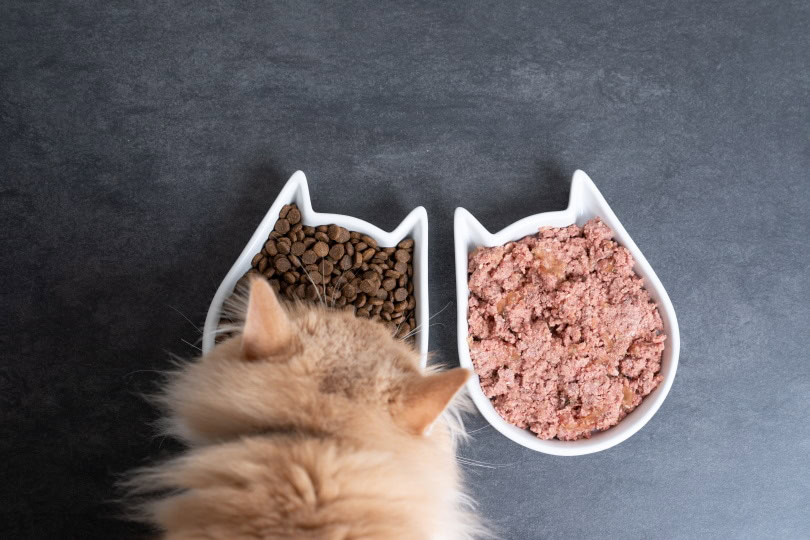VET APPROVED

The information is current and up-to-date in accordance with the latest veterinarian research.
Learn more »Click to Skip Ahead
We all know that dogs love cheese as much as we humans, but many of us probably never stop to wonder if some cheeses are healthier than others for our furry four-legged buddies. For instance, what about that fancy block of brie you’ve been hoarding? Is it safe for your dog to sample some?
Yes, brie cheese is fine for your dog to eat in very small amounts, but isn’t the best choice to feed your dog as far as cheeses go. While lighter on lactose than other cheeses, brie is notably high in sodium and saturated fat content, which can contribute to several health conditions: obesity, pancreatic conditions, and gastric upset, to name a few.
However, there are a lot of other cheeses you can give your dog to try to avoid these risks while giving them a good taste of cheesy goodness. So, read on for the details and everything you should know about your dog and cheese.

Which Cheeses Are Safe for Dogs?
While brie is a little too salty and fatty to make a regular healthy snack for your dog, there are several other cheeses with relatively low salt and fat content you can turn to—many of them probably already in your fridge at home! Check out some more healthy cheeses that you can give your dog instead of brie down below.
- Mozzarella
- Cheddar
- Swiss
- Cottage cheese
- Soft goat cheese
Bear in mind that you want to avoid any cheese that has any fancy herbs, seasonings, and other ingredients like onion or garlic. Choose only cheeses that are made of 100% dairy, and pick the low-fat choice when possible. As far as goat cheese, you want to choose a soft variety without a ton of excess salt.

When to Avoid Feeding Your Dog Cheese
Not all dogs tolerate dairy products like cheese equally well, just like lots of humans many are lactose intolerant. This becomes apparent early on in a dog’s life because you can’t help but notice the horrible diarrhea or gas that comes shortly after your dog eats cheese. Dogs can also have allergies to dairy products.
Even with dogs that seemingly have no problem scarfing down string cheese or cottage cheese, you want to limit how much they eat. Even a lot of low-fat cheese eventually adds up and can cause surprising weight gain. In severe cases, it can even contribute to pancreatitis. Breeds like Schnauzers and Cocker Spaniels tend to be more susceptible to this than other breeds, but your vet can give you a more personalized idea of whether cheese can be a regular part of your dog’s diet.
How to Incorporate Cheese into Your Dog’s Diet
Cheese should always be a luxury, and many dogs consider a nice piece of cheese a high value treat well worth learning tricks for. High-quality dry dog food should always make up the bulk of your dog’s diet, with cheese only offered as an occasional treat or to motivate training sessions. It also makes an excellent medication delivery system for skeptical pooches that resist taking pills.

Conclusion
Cheese can be a delicious, nutritious snack for any dog, but brie is a little too salty and fatty to be a regular offering. A bit is ok, but on a regular basis, we recommend sticking to a low-fat cottage cheese or mozzarella.
Featured Image Credit: slowmotiongli, Shutterstock












